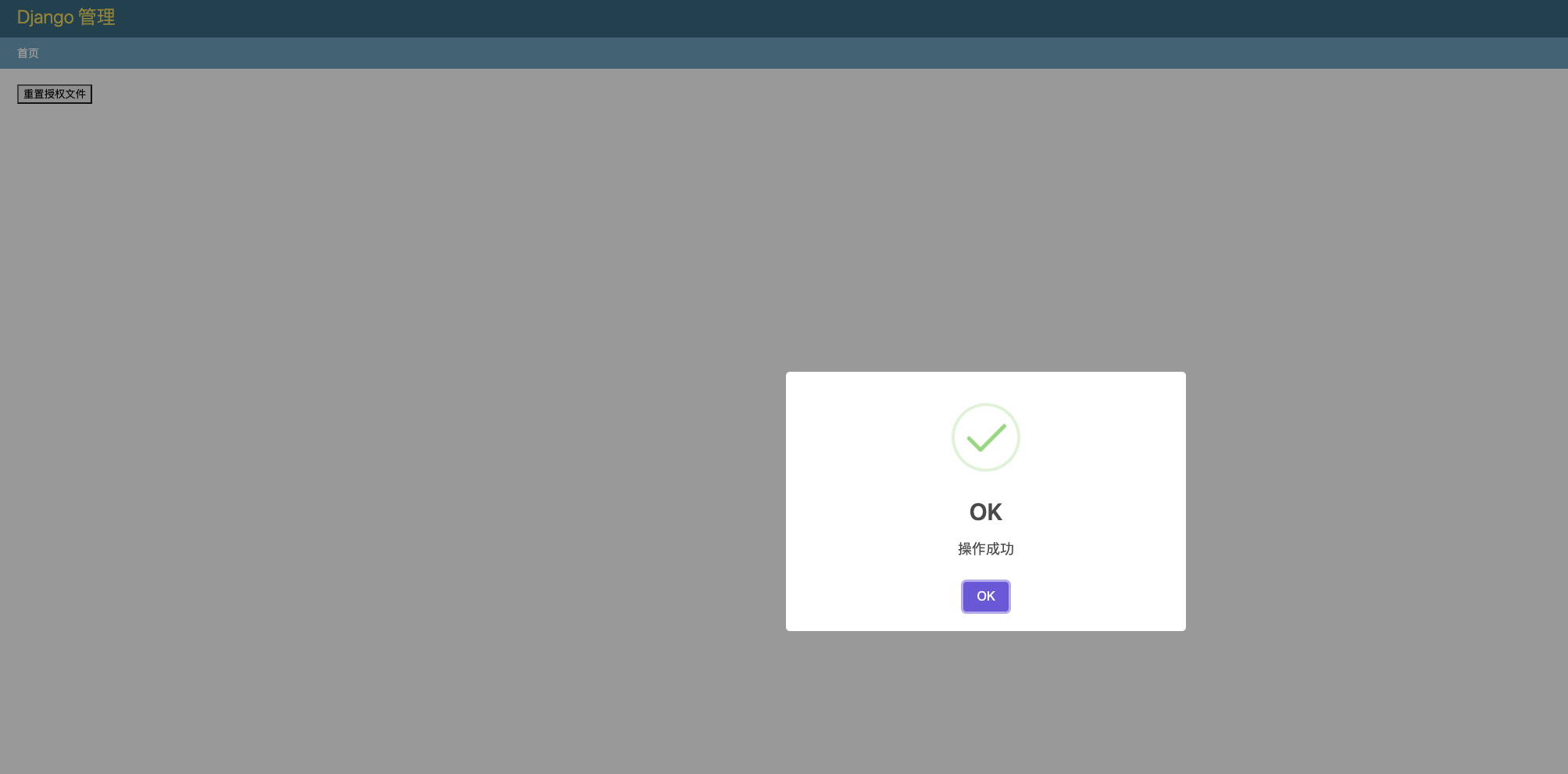Django admin后台添加自定义菜单和功能页面
django admin是根据注册的模型来动态生成菜单,从这个思路出发,如果想添加自定义菜单,那就创建一个空模型并且注册。步骤如下:
1、创建空模型:
class ResetSVNAuthFileModel(models.Model):
"""仅用来显示一个菜单"""
class Meta:
verbose_name = '重置授权文件'
verbose_name_plural = verbose_name2、注册到admin.py
重写changelist_view函数,使其点击菜单时,展示自定义的页面。在此你可以做orm查询,并且将数据渲染到模板中。而我想实现的是在页面中点击一个按钮来触发请求后端接口,来实现某种行为。
from django.contrib import admin
from django.shortcuts import render
from apps.setting.models import ResetSVNAuthFileModel
@admin.register(ResetSVNAuthFileModel)
class FeedbackStatsAdmin(admin.ModelAdmin):
def changelist_view(self, request, extra_content=None):
template_name = 'reset_svn_auth_file.html'
return render(request, template_name)
reset_svn_auth_file.html:
{% extends "admin/base_site.html" %}
{% load static %}
{% block content %}
<div class="text-center">
<!-- 点击按钮调用 JavaScript 函数 -->
<button onclick="resetFunction()" id="resetButton" class="btn btn-primary btn-lg">重置授权文件</button>
</div>
{% endblock %}
{% block extrahead %}
<script src="https://cdn.jsdelivr.net/npm/sweetalert2@11"></script>
<script>
function resetFunction() {
// 禁用按钮
document.getElementById("resetButton").disabled = true;
// 发送 AJAX 请求到 Django 视图
fetch('/admin-api/reset-auth-file').then(response => {
if (response.ok) {
Swal.fire({
icon: 'success',
title: 'OK',
text: '操作成功',
})
} else {
response.json().then(data => {
console.log(data)
Swal.fire({
icon: 'error',
title: '重置失败',
text: data.msg,
})
})
}
}).catch((error) => {
Swal.fire({
icon: 'error',
title: 'Oops...',
text: '请求失败',
})
}).finally(() => {
// 恢复按钮状态
document.getElementById("resetButton").disabled = false;
});
}
</script>
{% endblock %}把该文件放在空模型所在app下的templates文件夹。
3、定义后端路由和接口
django总路由:
from django.contrib import admin
from django.urls import path, include
from apps.repository.views import ResetAuthFileView
admin_api = [
path('reset-auth-file/', ResetAuthFileView.as_view(), name='reset-auth-file'),
]
urlpatterns = [
path('admin/', admin.site.urls),
path('admin-api/', include(admin_api)), # 在admin 自定义页面中发送过来的请求
]
接口函数:
class ResetAuthFileView(APIView):
def get(self, request):
# 可以写个中间件做认证
sessionid = request.COOKIES.get('sessionid')
csrftoken = request.COOKIES.get('csrftoken')
session = SessionStore(session_key=sessionid)
if not session.exists(session_key=sessionid):
return Response(status=401)
try:
SVN.reset_authz_file()
except Exception as e:
return Response(data={'msg': f'重置失败:{e}'}, status=400)
return Response(data={'msg': '重置完成'})大功告成,看成果:

点击菜单后的页面:


原文地址:https://blog.csdn.net/bocai_xiaodaidai/article/details/138004953
免责声明:本站文章内容转载自网络资源,如本站内容侵犯了原著者的合法权益,可联系本站删除。更多内容请关注自学内容网(zxcms.com)!
